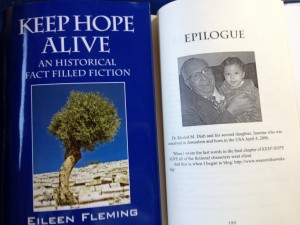The crone is a stock character in folklore and fairy tales
The crone is often depicted as a Grandmother, a wise woman, or a midwife. In Jungian psychology, the crone is an archetype. An archetype is the original pattern from which all things of the same kind are based
By Eileen Fleming
Every woman has within The Crone/Wise Woman/Hag/or Snag-meaning one who stands up against the status quo.
Once upon a time the word witch, crone and hag were meant as positive words to describe an old woman.
Crone comes from the word crown, indicating wisdom emanating from the head,
Hag comes from hagio meaning holy,
Wit is at the root of Witch and wit means wise!
The Crone is also understood as the third aspect of the “Triple Goddess” in which she symbolizes the dark of the moon and the end of a cycle. As patriarchy began to rise after c.7000 BCE the concept of a one-mother goddess was split into three aspects reflecting the stages of women’s lives – maiden, mother, and crone.
Ancient crones may have laughed their way through menopause but during the 300 years of the Christian Inquisition the meanings of Crones, Hags, and Witches were distorted then reversed!
Seeking to eliminate women who were holding positions of power the male-dominated church identified witches, crones, hags, and labeled them heretics who were tortured and fried; thus the words witch, crone and hag took on negative connotations.
The Crones Council explains:
The concept of crone existed tens of thousands of years ago when women’s life patterns were conceptualized in three stages — Maiden, Mother, and Crone.
The Maiden was the youthful, independent woman. The Mother was a woman who guided others–as a biological mother or as a teacher. The Crone was the postmenopausal woman who enjoyed a special, revered status.
The elder woman was viewed as a fount of wisdom, law, healing skills, and moral leadership; her presence and leadership were treasured at every significant tribal ceremony and each personal occasion from birth to death…
A few Ancient Crones compiled by Anya Silverman
Ala (Nigerian) Ama No Uzumi (Japanese) Asase Yaa (West African) Annis (Celtic) Badb (Irish) Baubo (Greek) Baba Yaga (Russian) Cerridwen (Celtic) Cailleach Bear (Celtic) Elli (Nordic) Grandmother Spiderwoman (Native American) Ereshkigal (Sumerian) Estsanatlehi (Native American) Hekate (Greek) Hella (Nordic) Inari (Japanese) Kali (Indian) Kalma (Finnish) Lara (Roman) Libitina (Roman) Mórrígan (Celtic) Mother Holle (German) Nicneven (Celtic) Nephthys (Egyptian) Sedna (Inuit) XochiQuetzal (Mexican) Lilith (Hebrew)
And Macha (Irish) who resonates most deeply with me because of my Irish DNA but foremost because she was known as: The wild woman who battles against injustice towards woman and children.
Eleanor Roosevelt was the crone who crafted the UNIVERSAL DECLARATION OF HUMAN RIGHTS which are based upon interfaith wisdom.
In response to George W. Bush’s bombing of Baghdad in 2003, the Crone within me emerged and the following words flew from my fingertips [and is enshrined in my first historical fiction inspired by a 1948 Palestinian Muslim refugee who made his way to the USA and lived an American dream. ]
Chapter 13: CATS and COMPASSION
Terese absentmindedly caressed the pristine one hundred sheet Official Mead Composition notebook during breakfast. Terese had been writing poetry for years, but refused to let anyone read any of it. She even refused Jake and had a secret ritual. The first full moon after she completed a book, she would light a fire at 1 a.m. in the fire pit where Jake barbequed. She would read her words one last time by the light of the moon, then toss in the Official Mead Composition notebook. She would walk in circles as it burned, and only after the embers died did her ritual circular walk.
After breakfast, she brushed her teeth, grabbed her backpack, and set off into the woods, pondering, “I have been wrestling with this idea for a book for too long. Will this try end up in the fire, too? As always, I do not know; I never know anything before I begin, and as long as I stay open to learn as I go, it will be okay, okay. Christ have mercy on me and help me, please!
“How do I explain concrete walls to little children, and why men choose violence? How do you explain irrational adult behavior to little ones? Why do men choose hatred, injury, discord, error, and darkness to love, pardon, unity, truth, and light? Why is that? Christ have mercy on us all!”
Terese sighed deeply and immediately became aware of the sun’s rays filtered through the thickly canopied trail, and sensed the scurrying of small creatures around her, who were camouflaged beneath the thick carpet of leaves she tread upon.
At the end of the trail, a gazebo had been erected in memory of a fallen soldier in a long ago war. Terese blessed herself as she entered, then opened her backpack, removed three gel pens and the one hundred sheet Official Mead Composition notebook, and groaned, “Okay, okay.”
Terese stared at the upper left corner of the virgin leaf of paper in her Official Mead Composition notebook and sighed as she chewed the end of a gel pen.
After a few deep breathes, she set the tip down at the uppermost intersection of the red vertical line and the first of twenty-four horizontal blue lines, and watched in amazement as words filled the page:
I am an old crone now, but I once was your age.
I remember, when I saw a picture in the newspaper of a little naked girl running in terror from a mushroom cloud, and I wondered, why did that girl have to run for her life in her hometown, when in mine, everyone was safe and happy?
That girl in the picture wasn’t safe, and she was not happy. I wondered about her, and me, and my hometown, and America.
I am an old crone now and I still wonder…
When images from Vietnam were on the TV screen, I was a mom of three and seven months pregnant with twins.
I went into early labor on the day a shot rang out in my hometown, and America’s prophet bled on the concrete of Memphis.
Terese sighed, flipped to a clean page, and wondered, “I am getting nowhere. I want to explain why there is war to children, but I don’t know how to go about it.”
She chewed the end of her gel pen and stared into the pistil and stamen of a white and violet day lily that grew next to the gazebo. A gunfire round of riveting from the redheaded woodpecker above her head brought Terese back to her empty page, and she sighed, “Christ, have mercy on me. What’s the deal with me? How could I think I could write a story to explain war to children, when I don’t understand why war has to be?”
She bit her lip and sighed a few more times, before putting the gel pen back to the paper.
Then she lit up like a Christmas tree as the words flew from her fingers:
Have you heard the one about Dorothy and her cats?
Dorothy was about your age when her tiny orange and calico cat named Peachez met with an early demise.
You see, little Peachez, barely a year old, got too big for her breeches, and snuck out Dorothy’s front door.
Nobody knew except Rikki, the deer dog who lived next door.
Rikki could not resist his nature to hunt, and Peachez was most exotic fare, for in this neighborhood, cats lived inside. Little defenseless Peachez never had a chance, for Rikki bit right through the neck of that tiny orange and calico cat.
Oh, how Dorothy mourned; oh, how she grieved; after a week, her mother could take it no more, and told her, “Girl, you need a new kitty!”
Dorothy agreed.
“Then, I will call the cat league and see what they have in stock, okay, Dorothy?”
“Okay, okay, do it for me, please.”
“Happily,” her mom replied, as she dialed the animal league.
Dorothy could not believe it when she heard her mother say, “Hi, have you got any kitties that need a home?”
Dorothy exploded, “No, not just any kitty, I know exactly what I want. I want a pure white cat with blue eyes the color of the summer sky, and I’ll call him Bob.”
“Okay, okay. Did you hear all that, lady from the animal league?”
“Yes, I did, and, ah–good luck with it. I have a lot of cats that could be Bob; some have pure white fur, but not a one has blue eyes.”
“Okay, thanks, we will continue on,” Dorothy’s mom sighed, as she hung up the phone.
“Girl, I have to pick up the dry cleaning next to the veterinarian’s office. Come with me now, and maybe someone there will be able to help you find your Bob with blue eyes and white fur on.”
For the first time since Peachez demise, Dorothy smiled when she said, “Okay, okay.”
Dorothy and her mom stood in line at the vet’s office for an interminable time before a doe-eyed brunette, as thin as a French-cut string bean, noticed them and inquired, “Hi, can I help you?”
Dorothy replied, “I am looking for the cat of my dreams; he has pure white fur and eyes the color of the summer sky, and his name is Bob.”
The string bean beamed, “Well, this is most numinous. You see, I have a five-year-old cat back in storage that needs a home. He is very sad, for he has been in a cage for almost seven months. He has licked off all his hair, and he pouts a lot.
“You see, it was Thanksgiving week when his first family dropped him off. They didn’t love him. They tossed him away. They wanted the doctor to give him a shot, to put him to sleep. But I said, ‘No way! I’ll put that cat in storage, and one day, someone will come in here and take him away.”’
Dorothy’s mom interrupted. “There must be a reason that family tossed that cat away.”
The doe-eyed string bean replied, “Sister, let me tell you, this cat is no more neurotic than any other cat I have known. I will not lie to you, for he is indeed one neurotic cat, who never was a beauty. But he did have white fur when he came in here, and his eyes are still as blue as a summer sky. He is most definitely OC; you see, he licks himself a lot, and so, is now as bald as a bat.
“Oh, by the way, he whines like a banshee and paces about. You see, after his upsetting Thanksgiving holiday, the vet fixed him for Christmas, and no doubt you can imagine why he is naturally still quite upset about that.
“Oh, by the way, he has claws, and since he is too old for surgery, they must stay. But, sister, I assure you, he’s no more or less neurotic than any other cat around.
“Follow me into the back room, and you will see that he really is a cool cat; you should take him away.”
Dorothy’s mother pleaded, looking hopefully at her daughter, “I think Dorothy wants a blue-eyed baby kitty, not one so worn-out.”
Dorothy shouted over the cacophony of barking and yelping, “I don’t care how old he is, as long as he is my Bob” just as the doe-eyed string bean stopped in front of the center cage and announced, “Surely, I told you–this cat has always been called Bob.”
And with that, she turned, and with one smooth motion, unlatched the cage and pulled out a long scrawny cat, with a few patches of white fur, but mostly skin showing.
His enormous blue eyes, the color of the summer sky, looked into Dorothy’s, and he moaned like a baby in pain.
Dorothy proclaimed, “He’s the one!”
Dorothy took him home on her shoulder as her mom drove the Crossfire, and Bob never moved a muscle, nor made a sound.
Dorothy’s mom thought, This won’t be so bad, right?
As soon as Dorothy put Bob down in her room, he wailed and moaned, and Dorothy did not know what to do, until her mom told her, “He’s just like a baby, and you may have to walk the floors holding him all night. Welcome to motherhood.”
Dorothy gleefully picked Bob back up and carried him around on her shoulder, just like you would a little baby.
Every single time she put Bob down, he would whine, kvetch, and pace all around, and would stare at her with his blue eyes the color of a summer sky.
Dorothy swore she heard him say, “Sister, I’ve got the blues bad, and I can’t calm down unless you carry me around.”
The very next night, the bombs hit Baghdad.
All night, Dorothy walked the floors with Bob, the blue-eyed cat on her shoulder, and a heart breaking, breaking, breaking for all the innocents caught up in the crossfire.
She knew she was connected. You are too.
In the 11th century, Hildegard of Bingen knew:
God responds speedily whenever the blood of innocence is being shed. Of this the angel choirs are singing and re-echoing their praise. And yet at the loss of innocence clouds are weeping.
Bob, the blue eyed cat, has now calmed down. He doesn’t want to be held, and he never makes a sound.
His hair has grown back, pure white and coarse as grit. Into his summer sky blue eyes, clouds of cataracts have moved in.
He moves slowly, slowly, slowly. Bob tucks his front legs under his chest and gently bows as he gets down.
What a contemplative Bob has become, for deliberate movement is prayer.
A new kitty has moved into Dorothy’s house, too.
A black and white long–haired, green-eyed feline named Oreo.
Dorothy found her when she was only a week old and abandoned by her cat mom, who left the litter and never returned.
Dorothy fed the baby kitty every three hours for three weeks with an eyedropper, and kept her warm.
Oreo has now grown big and strong, and likes to play, but sometimes can be a pain.
Bob always treats her gently, even when she bites his tail; he either plays or he walks away.
Terese stood, stretched and moaned, “That’s as far as I can go today.” [end of chapter]
The Crone within THIS AMERICAN is inspired by Don Hewitt who instructed his “60 MINUTES” staff:
The formula is simple and it’s reduced to four words every kid in the world knows: Tell me a story. It’s that easy.
The Era of Trump has resurrected this reporters Crone who will return HERE
Eileen Fleming is a full-time volunteer Health reporter and senior NON-Arab correspondent for TADN and is in process of writing her 10th book
Eileen Fleming produced the UNCENSORED “30 Minutes with Vanunu” which is freely streaming at YouTube
Contact her HERE


- Vanunu still has more nuclear secrets to spill, Israeli court declares - December 29, 2021
- 9/11 and a 20th Reflection of That Day - September 5, 2021
- Mordechai Vanunu: Final Annual Update and this Writers Next Steps - June 19, 2021


























